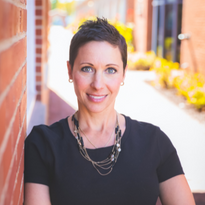
Dealing with the emotional side of divorce is difficult enough, but the anxiety over finding a new home and wondering if you can qualify for a mortgage can create a whole other level of stress. What you may not know, however, is there are Divorce Lending Professionals – people who specialize in helping those going through divorce to get financing. We sat down with Emile Flowers, Certified Divorce Lending Professional, for the Divorce etc… podcast, to talk about all the things you need to know about your home, mortgage, credit and more.
Divorce Mortgage Planning
Emile works with clients for divorce mortgage planning. That consists of taking all of your information and plugging it into a spreadsheet, in order to tell you what you’re going to need financially, and how much support you’ll need, depending on your next steps in keeping or searching for a house.
So when do you call a divorce lending professional?
“Immediately,” Emile stresses. If you’re going through the legal process of divorce, you want to have a team set up to help you evaluate what you have and need before the divorce decree is written up. It’s common to have a family law attorney, financial and tax planning expert, and someone to help with mortgage planning. But even if you already own a home, particularly if you will have to pay your spouse equity, it’s helpful to call someone like Emile.
First Steps
Emile says the process starts with a full application, assessing a person’s credit, any legal documents that are already in place, and examining any factors that may affect the steps to move forward with a home. “It’s the easiest way to take a look at every single thing you have in your life,” sums up Emile. “I need the big picture.”
And every situation is different. For example, in some cases, it might be better for someone to have settlement money from their ex coming in through a payment plan, while for others, having a lump sum is the most ideal. Depending on the situation, the divorce lending professional works with you to figure out what’s best for making sure payments are being made or received at the timeline you need, depending on your finances, to plan for home payments. They will work with the people on your team, such as your financial analyst, to help you find the best route to go and how to apply whatever money you receive when you get it.
“The importance,” explains Jessica, “is that there are financial planners, mortgage brokers, and mortgage lenders out there. But having someone like Emile, a certified divorce lending professional, means that she will have other ways for you to qualify that the traditional mortgage person may not know. This is her specialty.”
No Fees??
What many people don’t know – and something that may pleasantly surprise you – is that divorce lending professionals aren’t able to charge for their services. “What I am is a resource,” describes Emile. “I’m a resource to your attorney, and I’m a resource to you.” She only gets paid if she has to testify in court, but otherwise, she’s simply there as a great resource in your divorce process.
Finding Unique Paths for a Loan
What stops a lot of people from thinking a loan is possible for them is a lack of steady income. But divorce lending professionals can open people’s eyes and help them see that there are ways to find income streams that qualify them for a loan, even if they don’t have a job or a paycheck every month. There are several ways to show someone that you can buy a home, even without traditional forms of income.
One thing to ask yourself is, do you have any lump sum opportunities? If so, you’ll need to work around these guidelines if you’re trying to use it to finance a home. Do you have alimony coming in? Because that’s income right there. What about child support? Yes, that’s income too.
But these forms of income aren’t without rules and guidelines. That’s why your attorney needs to talk to a divorce lending professional like Emile to make sure that things are worded properly in the divorce settlement agreement, and that it counts toward what you want to accomplish with that money.
To meet the FHA guidelines, you’re going to need to have typically six months, and a minimum of three months, of collected income coming in. You will have to show documents proving that the money is actually coming into your account regularly.
If There’s a Will, There’s a Way
Seeing how many factors are at play in these situations might make you lose hope. But Emily has a surprisingly high percentage of people who come to her, believing they wouldn’t qualify for loans, yet she finds them a way. “Using somebody like me, free, and being able to structure all of that and have a conversation,” Emile remarks, “the chances are a lot higher having a conversation with me than [if] they are having a conversation with anybody else.” That’s why it’s so valuable to know all about divorce lending professionals and what they do, because they know all the tips and tricks, all the ins and outs, and can get you results you didn’t even think were possible.
Leave a Comment
You must be logged in to post a comment.










